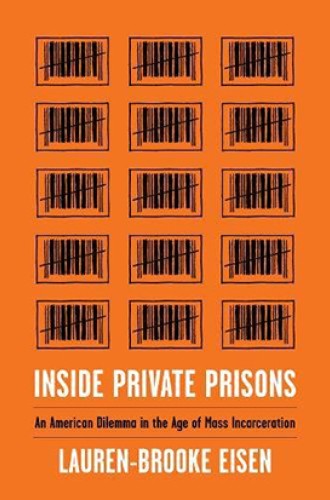The questions private prisons raise
Is private management more efficient? Is it wrong to profit from punishment? Is the whole idea immoral in concept?
The United States incarcerates more individuals per capita than any other country in the world, currently 2.1 million. In the words of theologian T. Richard Snyder, our nation is pervaded by a “culture of punishment.”
Many readers of Michelle Alexander’s The New Jim Crow believe that the principal driver of mass incarceration was the War on Drugs, which began in earnest in the 1980s and targeted primarily black and brown men. In fact, there were several causes. The War on Drugs did produce an irrationally harsh criminal code, militarized law enforcement, and a federal antidrug bureaucracy that has had a devastating impact, especially on African American and Hispanic communities. But of the individuals imprisoned in the U.S. today, only about 20 percent are there because of a drug-related crime. Lauren-Brooke Eisen sheds light on another part of the prison-industrial complex: the emergence of a for-profit, private-sector incarceration industry.
Private prisons generate intense debate. Are they immoral in concept? Isn’t it fundamentally wrong to profit from punishment? Do private prisons deliver greater efficiency and cost savings (the argument for privatizing other services such as waste management and highway maintenance)? Eisen considers these questions as she explores this controversial manifestation of corporate America.
Read our latest issue or browse back issues.
On the question of whether private prisons have a legitimate function, Eisen takes us carefully through the arguments on both sides. At the very least, privatization is supposed to cut costs. But, Eisen points out, Government Accounting Office studies over the years have concluded that this claim is almost impossible to measure. Private prisons are also supposed to produce innovation and improve quality by promoting competition. But studies, including a report from the Brookings Institution, find that such competition is “fairly minimal,” given that the industry has only three major corporate players. Privatized prisons also claim to provide improved services at a lower cost. But most savings come via reduced labor costs because private prison staff are not unionized. Does this money go into creating better prison conditions? Not likely.
Private prisons arguably offer greater flexibility, however. In the face of massive prison overcrowding, especially in the mid-1990s, for-profit corporations were able to build facilities quickly and, when demand slackened, shut down quickly. A profound fear, of course, is that in the drive to maximize profit from private prisons, entrepreneurs will cut costs in a way that turns a grim existence into an unbearable one: bad food, poorly trained and unsupervised staff, and unheated cells. Eisen describes a privately operated Idaho corrections institution “so violent that inmates called the facility ‘Gladiator School.’” But comparable travesties also are evident in the public sector. We need only recall Sheriff Joe Arpaio and the tent city jail he created in Maricopa County, Arizona, which had no air conditioning even as temperatures in the tents exceeded 140 degrees.
Eisen shows how closely the for-profit prison industry works with the American Legislative Exchange Council, a nonprofit trade group through which conservative state legislators and corporations develop model legislation that is shared and often adopted by states. “Three strikes” laws (which impose arbitrary harsh sentences for third-time offenders even when the third offense is trivial) and “truth in sentencing” (which specifies mandatory minimum sentences and curbs opportunities for parole), prominent elements of the War on Drugs, are among the council’s legislative products. For several years, a leader of the for-profit prison industry was the chair of ALEC’s policy task force.
Like a virus, the industry adapts quickly to move toward new opportunities. It might well be struggling today were it not for the new market created by the federal campaign to criminalize immigrants. In 2016, nearly 353,000 individuals were placed in civil detention facilities. The private prison industry manages 62 percent of those beds. Arguably, the push to arrest so-called illegal aliens and deport them is the best thing to happen to for-profit prisons since the end of the Obama administration.
At the end of the day, perhaps the most compelling argument against private prisons is that investors gain when individuals are put in jail. The prison industry is a lobbying force that shapes our culture of punishment by pushing national policy toward greater mass incarceration.
Eisen’s book will not satisfy those who want only a screed against private prisons and the immorality of profit from punishment. Instead, it is a balanced, fair, and comprehensive analysis. It does not tell readers what to think but instead gives us the information we need to make up our own minds. This makes it all the more valuable.
A version of this article appears in the print edition under the title “Profitable punishment.”







